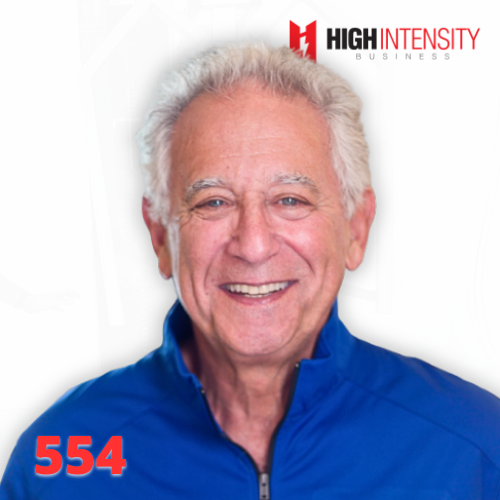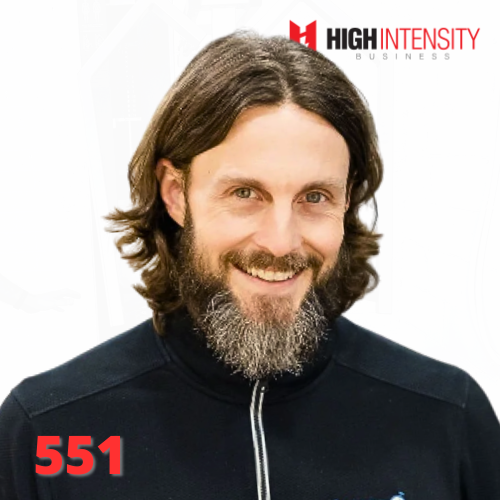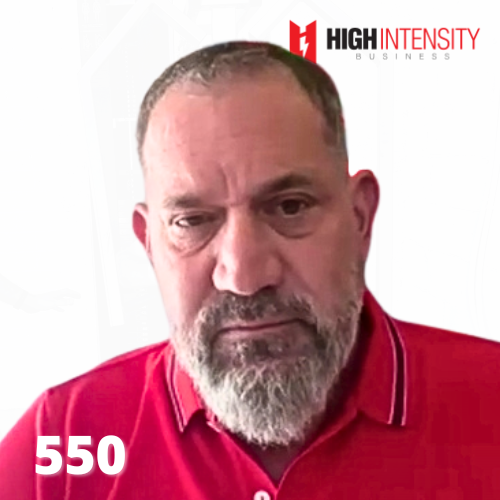
Dr. Jürgen Giessing
Why do some scientific studies say that HIT is better than High-Volume Training, and why do others say the opposite?
How can you make sense of this information for yourself and your strength training clients?
Dr. Jürgen Giessing ( giessing [at] uni-landau [dot] de ) is an esteemed researcher and professor of sports science at the University of Landau in Germany, and his expertise is in muscle hypertrophy and its health-related effects. He has authored best-selling books on High-Intensity Training, including his newest one titled HIT — new and improved: High Intensity Training: How to spend less time and build more muscle (Amazon US; Amazon UK).
In this episode, we dive into the science behind why HIT is better for you long-term, optimizing muscle recovery and muscle-protein synthesis, debunking common muscle-building myths, incorporating cardio into your HIT regimen (and why you might want to), and so much more!
Download a FREE step-by-step guide on how to build a referral machine
Set your fitness business up for massive success here
***
This podcast episode is brought to you by Imagine Strength.
Grow a successful High-Intensity Training business with the best workout equipment, intelligently designed to fit the unique needs of your strength studio.
Imagine Strength lives and breathes HIT, designing innovative equipment that’s of the highest quality at affordable prices.
Visit ImagineStrength.com and discuss your specific needs with the team, and choose the equipment that will propel your fitness business to the next level.
Start today ➡ ImagineStrength.com
***
Be the Best Personal Trainer You Can Be ➡️ Get HITuni Certified here
***
- Listen to it on Apple Podcasts
- Stream by clicking here
- Download as an MP3 by right-clicking here and choosing “save as”
Show Notes
- 03:15 – Is HIT superior to High-Volume Training for Health?
- 09:54 – How HIT helps elderly people stay incredibly fit
- 11:23 – Understanding Wear and Tear when Strength Training
- 13:43 – The dangers of bench pressing (improper form and alternatives)
- 16:53 – What’s the PERFECT training frequency for building muscle? (Muscle protein synthesis stimulation, training frequency, recovery periods, overtraining)
- 25:51 – How to avoid overtraining and recover properly from training
- 29:09 – How to measure sleep quality
- 31:19 – Understanding the different types of overtraining
- 34:24 – Using split routines to avoid overtraining
- 36:53 – How age affects recovery and how you should train
- 41:20 – How to think about individual differences when strength training
- 45:04 – Interesting conversation about bodybuilding and building your physique
- 55:34 – Can cardio actually contribute to muscle growth?
- 01:12:11 – How to think about heart rate and incorporating cardio
- 01:15:11 – How to think about an ideal weekly workout program
- 01:22:03 – An important warning to people who don’t exercise
- 01:25:33 – Study: How HIT helps prevent / improve type-2 diabetes
- 01:29:29 – Why you can’t exercise your way out of a bad diet
- 01:32:07 – The benefits of working out fasted (if approached properly)
- 01:35:13 Strength train twice a week, upper & lower body workouts each.
- 01:34:26 – Dr. Jurgen Giessing’s Personal Training Program
- 01:43:07 – A commonly heard stupid take: bigger bodybuilder = more knowledgeable; smaller bodybuilder = less knowledgeable
- 01:46:05 – When unfit people criticize fit people
People Mentioned & Selected Links from the Episode
- Dr. Jürgen Giessing | On ResearchGate | Previous HIB Episode
- Dr. Jurgen Giessing’s Books:
- Kieser Training
- John Little | HIB episodes
- Dr. James Steele | HIB Episodes
- Dr. James Fisher | Knee Injury Recovery Episode | More HIB Episodes
- Dr. Doug McGuff | Why You Should NOT Bulk Up | More HIB Episodes
- Petter Attia
- Usain Bolt
- Arthur Jones | Nautilus | MedX
- Body by Science – Dr. Doug McGuff (book)
- Good to Go: What the Athlete in All of Us Can Learn from the Strange Science of Recovery – Christie Aschwanden (book)



 554 – The Secrets To Attracting HIT Clients, Keeping Them Forever, And Building A Successful Strength Studio (with Super Slow LA’s Ben Fisher)
554 – The Secrets To Attracting HIT Clients, Keeping Them Forever, And Building A Successful Strength Studio (with Super Slow LA’s Ben Fisher) 551 – Using HIT Workouts To Build Muscle, Get Shredded, and Thinking About Rep Ranges, TUL, Exercise Variety, and more (with Skyler Tanner)
551 – Using HIT Workouts To Build Muscle, Get Shredded, and Thinking About Rep Ranges, TUL, Exercise Variety, and more (with Skyler Tanner) 550 – How to Sell A HIT Fitness Business The Right Way — What You Need To Know (with Mike Zarrillo)
550 – How to Sell A HIT Fitness Business The Right Way — What You Need To Know (with Mike Zarrillo)
good one. any way you know of that I can get the kindle or hard cover edition of his latest book here in Canada.
Very informative podcast Lawrence, great interview!